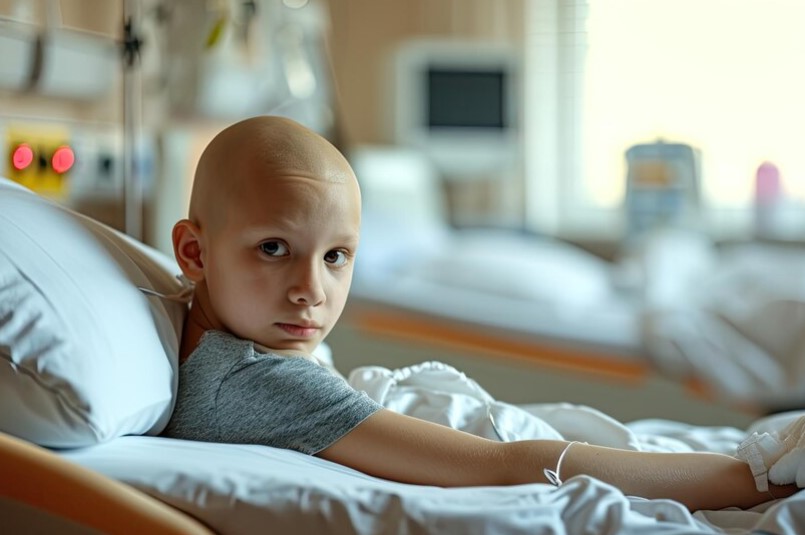
Childhood blood cancer is a critical yet treatable condition when identified early and managed by skilled specialists. As a leading pediatric hematologist in Delhi, Dr. Vikas Dua offers expert care for children facing this challenge. This article explores the symptoms, diagnosis, and treatment options available for childhood blood cancer.
What is Childhood Blood Cancer?
Blood cancer in children primarily affects the bone marrow, blood cells, and lymphatic system. The most common types include:
- Leukemia: Affects the bone marrow and blood, leading to abnormal white blood cell production.
- Lymphoma: Impacts the lymphatic system, weakening immunity.
- Myeloma: Rare in children, involves plasma cells in the bone marrow.
Symptoms of Childhood Blood Cancer
Recognizing early symptoms can make a significant difference in treatment outcomes. Common signs include:
- Unexplained Fatigue: Persistent tiredness due to reduced red blood cell production.
- Frequent Infections: A weakened immune system leads to recurring illnesses.
- Bruising or Bleeding: Easy bruising, prolonged bleeding, or nosebleeds are red flags.
- Bone or Joint Pain: Cancerous cells in the bone marrow can cause discomfort.
- Swollen Lymph Nodes: Painless swelling in the neck, armpits, or groin may indicate lymphoma.
- Fever or Night Sweats: Persistent fever or excessive sweating at night without any apparent cause.
- Weight Loss: Unintended and rapid weight loss can signal a serious condition.
Diagnosing Childhood Blood Cancer
Timely diagnosis is essential for effective treatment. Diagnostic steps include:
- Physical Examination: A thorough check for swollen lymph nodes, spleen, or liver.
- Blood Tests:
- Complete blood count (CBC) to detect abnormal levels of blood cells.
- Peripheral blood smear to identify abnormal cells.
- Bone Marrow Biopsy: Confirms the presence and type of cancerous cells in the bone marrow.
- Imaging Tests: X-rays, CT scans, or MRIs help assess the spread of the disease.
- Genetic Testing: Identifies specific mutations associated with blood cancer types.
Treatment Options for Childhood Blood Cancer
Modern medical advancements offer a range of treatment options for childhood blood cancer.
- Chemotherapy: The most common approach, chemotherapy uses drugs to kill cancer cells or stop their growth.
- Radiation Therapy: Targets specific areas affected by cancer to destroy cancerous cells.
- Targeted Therapy: Uses drugs that specifically attack cancer cells without harming normal cells.
- Bone Marrow Transplant (BMT): A life-saving option, BMT replaces damaged bone marrow with healthy cells. Dr. Vikas Dua specializes in BMT, offering hope to many families.
- Supportive Care: Includes managing infections, maintaining nutrition, and providing psychological support to children and families.
Importance of Expert Care
Childhood blood cancer is a daunting diagnosis, but with early detection and treatment under a skilled pediatric hematologist like Dr. Vikas Dua, children can achieve better outcomes. His expertise in managing complex cases and compassionate approach make him the trusted choice for families in Delhi.
Conclusion
Understanding the symptoms, timely diagnosis, and exploring advanced treatment options are critical steps in managing childhood blood cancers. With the right care and guidance, children can recover and lead fulfilling lives. Dr. Vikas Dua’s unmatched expertise in Delhi ensures that young patients receive the best possible care on their journey to recovery.

